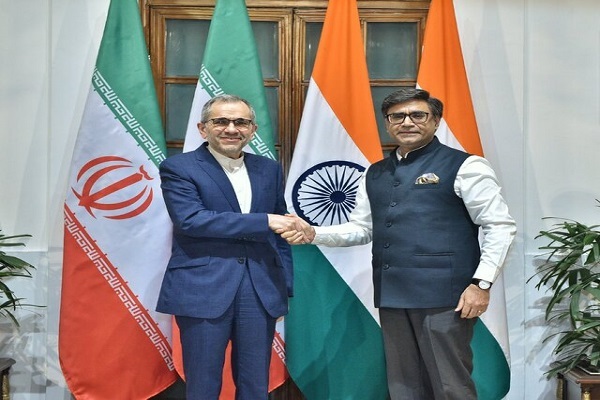
TABNAK, Jan 04: Iran’s Deputy Foreign Minister for Political Affairs Majid Takht-Ravanchi who is in India along with an Iranian delegation in a meeting with Foreign Secretary of India Vikram Misri reviewed mutual ties asked New Delhi to explore ways to resume purchases of Iranian crude oil.
India stopped buying crude oil from Iran in mid-2019 due to Washington’s sanctions on Tehran.
Takht-Ravanchi also met with Indian Foreign Minister Subrahmanyam Jaishankar where the two sides conferred on bilateral issues and current regional challenges.
“We discussed bilateral relations, progress in Chabahar Port and regional developments. We are confident that the consultations of the Ministry of External Affairs will help strengthen our relations,” Jaishankar wrote on his personal account on X (formerly known as Twitter) after the session.
In May, Iran and India finalized a significant 10-year agreement concerning the operation and equipping of Chabahar's Shahid Beheshti Port.
Under this agreement, Iran’s Ports and Maritime Organization will transfer portions of the freight and container terminals to India.
In return, India is committing $120 million for strategic equipment and an additional $250 million for transport infrastructure.
This agreement not only fortifies economic ties but also strategically positions Chabahar as a counterbalance to Pakistan’s Gwadar Port.
It fosters regional stability and provides alternative trade routes for landlocked nations such as Afghanistan
Iran and India have a long-standing historical relationship, underscored by cultural and economic ties, and formalized by the 2003 Strategic Partnership Agreement.
This partnership has flourished, particularly in the fields of energy and trade, with bilateral trade reaching an impressive $17.5 billion in 2022-2023, despite anti-Iran sanctions by the West.
As members of BRICS, both countries have strategically utilized initiatives like the International North-South Transport Corridor to effectively lower freight costs and transit durations, enhancing their trade efficiency and economic cooperation.
Moreover, cultural exchanges and collaborations in technology and pharmaceuticals are on the rise. This is evidenced by a notable 30% increase in Indian tourism to Iran in 2022.